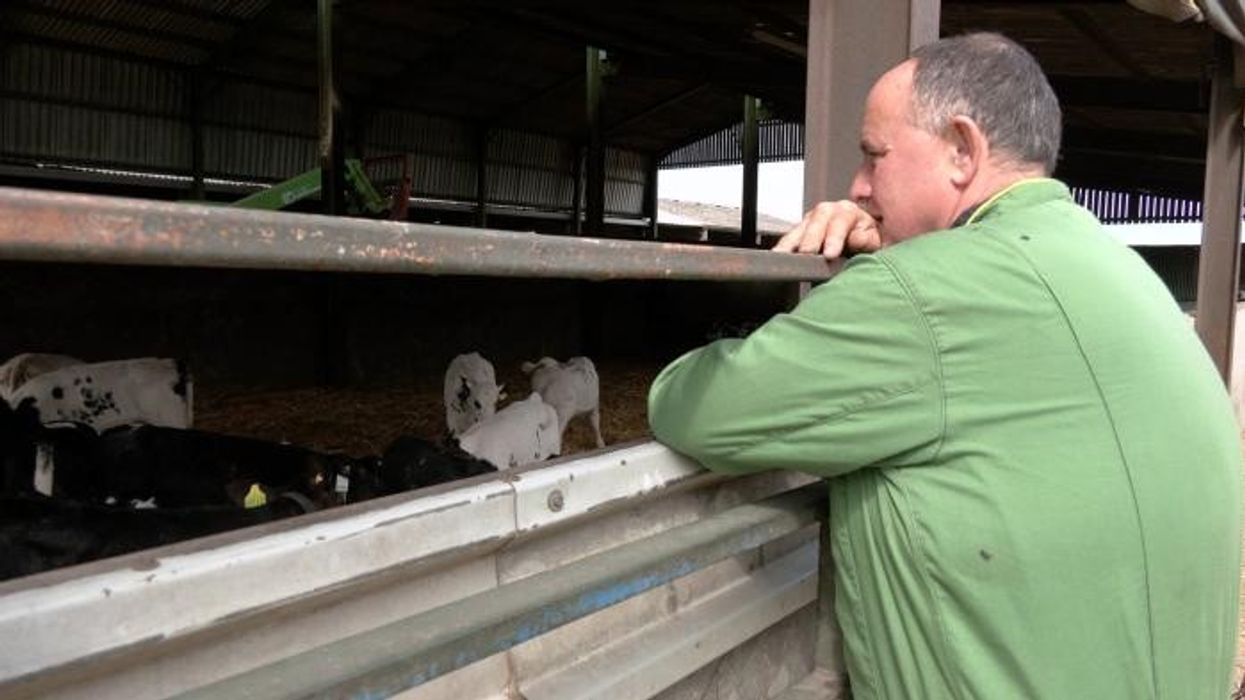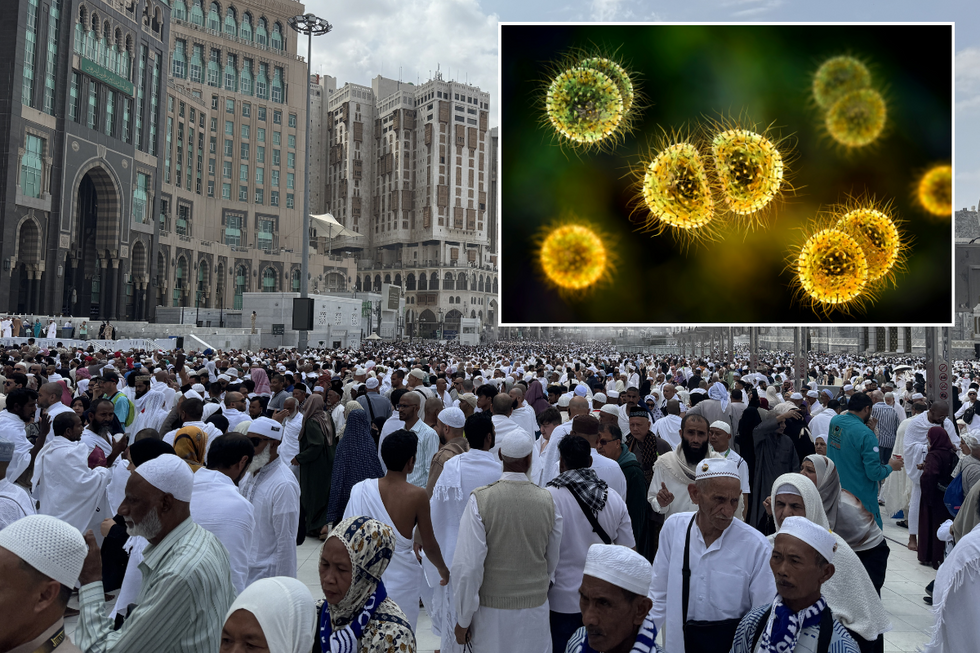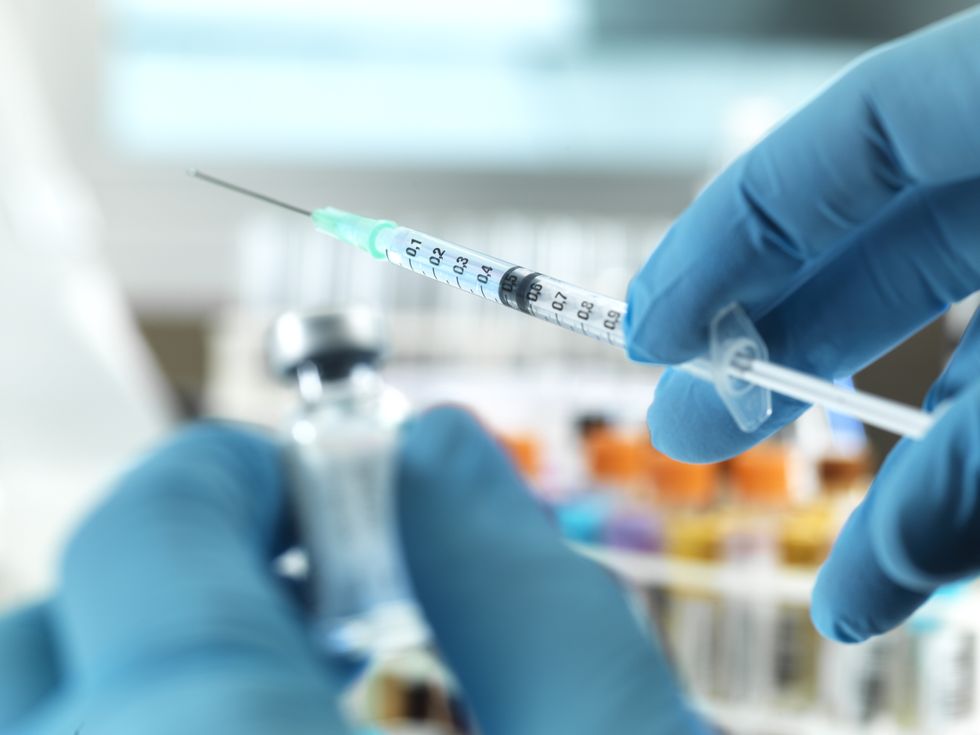Health alert issued as deadly flu-like disease arrives on UK shores - 'Get jabbed!'

WATCH NOW: Farmers in North Yorkshire face a 'health crisis' according to Healthwatch report
|GB News
Without quick treatment, the disease can develop into life-threatening septicaemia - or blood poisoning
Don't Miss
Most Read
Latest
Health officials have issued a warning over a surge in a potentially lethal bacterial disease arriving on British shores.
Five cases of Meningitis W were confirmed between February and March, according to the UK Health Security Agency.
All patients had either recently returned from an Islamic pilgrimage to Mecca in Saudi Arabia, or had family members who had.
The infection affects the protective membranes surrounding the brain and spinal cord and can lead to permanent disability or even death.

All patients had recently returned from Umrah, an Islamic pilgrimage to Mecca or had family members who had (Stock)
|GETTY
Meningitis W spreads primarily through close contact with infected individuals via droplets from the nose and mouth, such as coughing, sneezing or kissing.
Initial symptoms may appear flu-like, but without rapid treatment, the disease can quickly develop into life-threatening septicaemia, or blood poisoning.
Within hours, this can lead to serious complications including brain damage, seizures, and death, possibly leaving survivors with long-term disabilities such as hearing loss, brain damage and limb amputations.
Consultant Epidemiologist at UKHSA Dr Shamez Ladhani said: "Vaccination is essential for pilgrims travelling to Saudi Arabia, particularly given recent cases among UK returnees and their families.
"Meningococcal disease can be fatal and may leave survivors with serious lifelong conditions including hearing loss, brain damage and limb amputations."
LATEST DEVELOPMENTS:
Health officials are urging Britons to ensure they've had the meningitis vaccine to prevent infection, especially those planning trips to Saudi Arabia.
The vaccine should be administered at least ten days before travel.
Dr Ladhani advised: "Pilgrims should remain vigilant for symptoms like sudden fever, severe headache, stiff neck, or rash.
"If you or anyone at home becomes unwell with any symptoms of meningitis within two weeks of returning from Saudi Arabia, contact your GP or NHS 111, mentioning your recent travel history, or dial 999 in case of emergency."
As the infection progresses, more severe signs may include severe aches in muscles, joints, chest or abdomen, a dark purple rash and rapid breathing.

The vaccine is routinely offered to teenagers aged 14 years old in the UK, available to people up to the age of 25 who have never had a meningitis vaccine before (Stock)
|GETTY
Dr Sahira Dar, President of the British Islamic Medical Association, added: "Millions of people gather in close proximity during the pilgrimages, in accommodation, and on public transport, increasing the risk of contracting infectious diseases like meningitis."
The association "highly recommends" anyone attending the pilgrimages get the meningitis vaccine, known medically as the MenACWY vaccine.
The jab offers protection against four types of bacteria that can cause meningitis: meningococcal groups A, C, W and Y.
Meningitis W is one of seven different meningococcal bacteria that can cause the disease, accounting for around seven per cent of all UK cases.
The vaccine is routinely offered to teenagers aged 14 years old in the UK, available to people up to the age of 25 who have never had a meningitis vaccine before.










